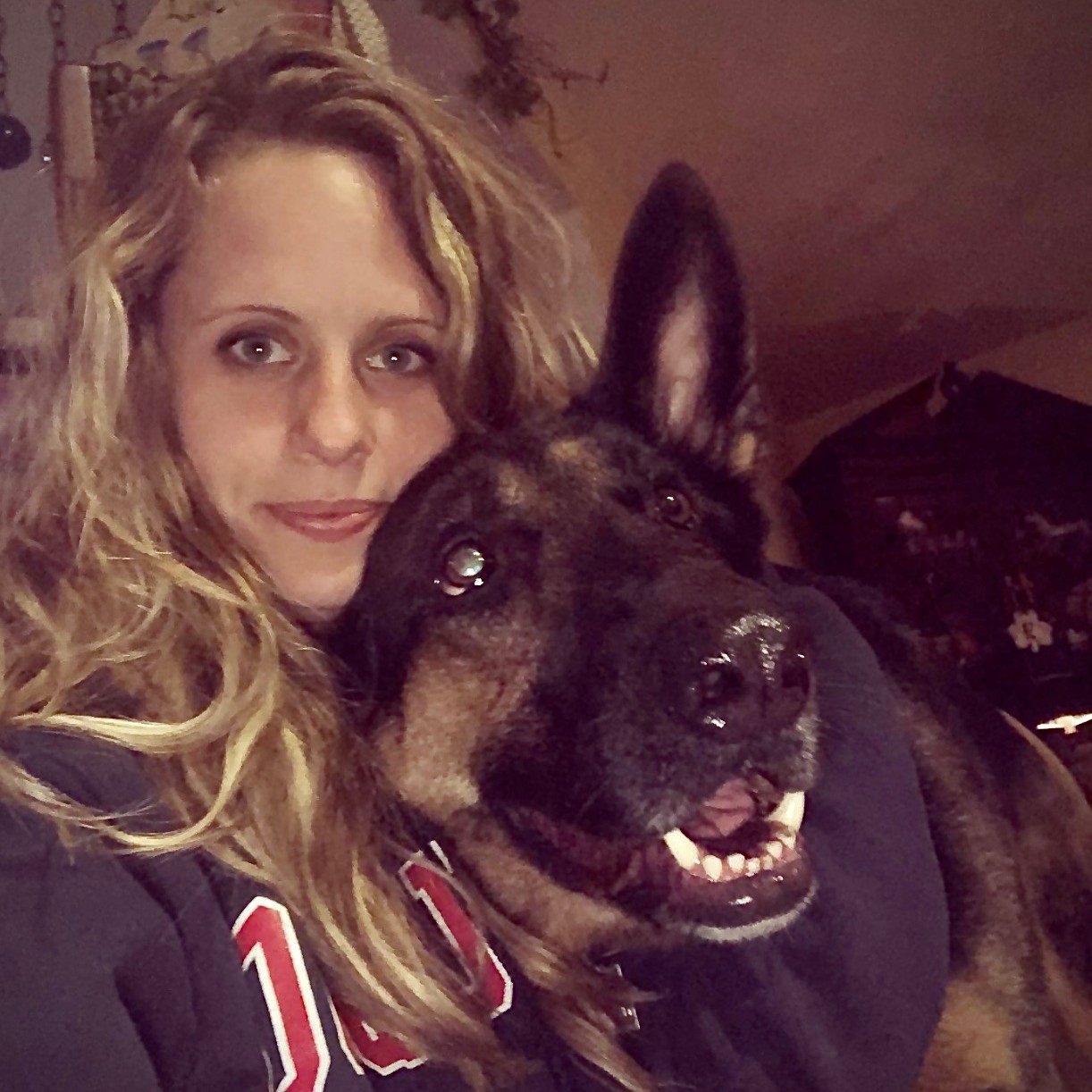There are a lot of things that surround and touch our dogs that can lead to allergies in dogs. So where do we start?
We start by asking questions and taking a new look at all those everyday things that are quietly, almost invisibly causing allergic reactions in our dogs and in us.
If you have a dog with allergic reactions you just can't shake, the great news is sometimes there are answers and simple things we can do right in front of us - long before we go down the path of allergy shots, an allergy vaccine, or even complex allergy testing/skin testing.
Okay, tell me more...
Your Dog's Plan
Stop! Don't read this long article. Instead, get everything you need to know, including all advice on Environmental Allergies, in a customizable step-by-step plan for your dog created by our community of certified trainers and nutritionists.
Let's bring some conscious awareness to those things WE can control easily and inexpensively - everyday things that are in our hands and don't require the expense of veterinary medicine to reduce our toxin load and environmental allergens, and build a stronger immune system in affected dogs.
Nutrition is vital for the health and vitality of our dogs, but environmental influences also play a big role in our dog’s gene expression to either promote health within the body... or disease.
As a canine nutritionist, I'm often looking at potential food allergies and using complex, lengthy methods such as an elimination diet trial to determine how a dog's immune system responds to food trial changes. It can be a convoluted, detective-like process.
Today, we're focusing on environmental allergies that can be big contributors to your dog's symptoms -- and some quick-to-implement changes that can help your dog's immune system and alleviate allergy symptoms.
If you notice signs of allergic reactions in your dog such as itchy skin, inflamed skin, a bit of a runny nose, "hay fever," respiratory distress, paw licking, tear stains... for most dogs, these can all be allergy symptoms and clinical signs that it's time to pay attention to your home's everyday toxins and environmental allergens.
There's a natural alternative for everything - household cleaners, lawn treatments, candles, shampoos, conventional flea & tick and heartworm medications, anti-inflammatories, antibiotics, etc. By questioning what we are putting inside and around our dogs' bodies we start to question ingredients and the effects of our mindless everyday actions.
3 questions to ask yourself & answers you can jumpstart into action easily
Q1: Are dust mites (possibly the most wide-spread offending allergen that triggers dog allergies) a presence in my home?
Unless you live in the desert, it's a good bet the answer is yes. As much as we would rather keep them "out of sight, out of mind," you can be pretty sure house dust mites have staked out their turf in your house and they're causing anywhere from a low-level allergic reaction to an acute allergic reaction in your dogs.
Okay, tell me more...
Dust mites are everywhere but you can reduce their presence to lessen their impact on giving your dogs allergies and asthma - as well as the humans in your family. They thrive on moisture and (disgusting as it sounds) human and animal dead skin cells. So the most commonly affected areas are your bed linens/bedroom, bath, fabric surfaces like upholstered furniture, pillows, rugs, and, for a pet owner, your dog's bed.
Useful to know: house dust mites don't survive in dryness and high heat (130 degrees+) and aren't fond of hard surfaces like hardwood floors. And they're repulsed by the smell of lavender, eucalyptus, and peppermint.
So what's a dog parent to do?
Try this
- Vacuum frequently - especially soft surfaces, heating & air vents, even your mattress
- Wash your bed linens at least once a week in hot water, dry in a hot dryer - it's the heat more than the detergent that does it. Wash bed pillows regularly and between washings, throw them in the dryer for at least 10 minutes on high heat. (On the subject of soap for linens, many wellness experts recommend Dr. Bronner's, a natural castile soap, with no toxic chemicals to irritate your dog's skin and the added benefit of coming in a natural lavender scent, which we know isn't a dust mite favorite.)
- And everyone's new favorite thing - not making your bed instantly in the morning (or maybe all day). Let it air out so there's no moisture to welcome allergy/asthma-triggering dust mites.
*Added bonus: everything you're doing to get rid of dust mites also helps alleviate seasonal allergies as you reduce the amount of outside allergens like grass pollens tracked in on shoes, paws, and your dog's skin and coat.
Environmental Allergies
Interested in Environmental Allergies? Follow topics you're interested in to customize your dog’s step-by-step plan so it's most helpful and tailored to your dog when you're ready to get started.
Q2: Are the candles I'm using helping or hurting the air my dog and I are breathing?
I love burning candles, so this was a big point of awareness for me - and just about every pet owner I know who wants a fresher-smelling house. Check to see what your candles are made of: paraffin candles release soot and toxins (including the artificial scents) in the air when you burn them. It's a simple but notable change to your air quality to switch to something more natural.
Why it matters
Paraffin candles (derived from petroleum) are known to emit carcinogens and cause respiratory problems as well as aggravating already existing respiratory conditions.
Try this
You can still have scents for your home, just change the delivery method to something cleaner, more natural. Try beeswax or soy candles, with natural fragrances or in the case of beeswax just the natural scent of beeswax.
Or diffuse essential oils in a proper diluted amount in a passive diffuser (the reed type) and in a scent compatible with dogs like lavender. (Some essential oils are toxic such as tea tree, peppermint, wintergreen...And oils should NEVER be applied directly to dogs or cats.)
Remember with all scents, your dog has an exponentially magnified sense of smell and strong scents can overwhelm their sensory system making them uncomfortable or even seriously ill if the scent is toxic for them.
Allergies
Need more advice? Browse all guides in the Allergies Channel on topics like Itchy Allergies, Food Allergies, Seasonal Allergies, and Environmental Allergies - created by our community of certified experts for you and your dog.
Q3: Am I cleaning my home and introducing toxins & environmental allergens at the same time?
For most of us, the answer would be yes. For years, I used ammonia (in commercial window cleaner) to clean the dog nose smears off my windows and doors. When I became conscious of the fact that my dogs super sensitive noses were making contact with ammonia residue and breathing it in, I couldn't change to white vinegar fast enough. And good news - it works just as well, better when you take in all the other factors.
Safer, natural solutions are available now for any type of cleaning in your home. Many stores are stocking green products, and it's super simple to even make your own. If you stock up on white vinegar, apple cider vinegar, baking soda, and lemons - plus a natural castile soap like Dr. Bronner's, you're in good shape to tackle just about anything. Including keeping your dog clean!
Why it matters
Most dogs, if not all, are close to the ground, sniff every surface incessantly and deeply, roll around on the floor, our beds, their beds, you name it... and in the process, whatever chemicals, dyes, toxins, and allergy-triggering substances are in our "cleaners" affect our dogs exponentially more than they do us. It's so easy to do better - for them and for us.
Try this
For a DIY all-purpose cleaner for floors, countertops, windows, my go-to is half distilled white vinegar/half water. Vinegar has anti-bacterial/anti-fungal properties so it's great for addressing mold spores on bathroom surfaces or bacterial infections on kitchen countertops (even helpful in keeping secondary skin infections from developing when skin allergies present themselves).
You can add various spins to the vinegar/water cleaner. You might try one of my recent mixes: fill a mason jar with vinegar, squeeze the juice of a fresh lemon into it, throw in the lemon rinds, and let it steep for a while. Then fill a spray bottle with half water/half your lemon-vinegar mix and use everywhere for a fresh, effective cleaner!
And to keep our allergy-prone dogs clean...
Is your dog itching? That's such a common symptom with most dogs who pick up all sorts of allergens on their coats that show up as skin allergies (or tear-stained eyes, etc). To keep your dog from carrying around allergens constantly on his or her coat, frequent but not too frequent bathing with an all natural or hypoallergenic shampoo, followed by an apple cider vinegar/water rinse is your best choice. In between baths, you can rinse your dog's paws or whole body with the ACV/water rinse which will remove allergens but not the good oils your dog's skin needs.
There you have it - 3 questions to get you started in seemingly small ways that generate a big positive response and ripple effect in supporting your dog so his/her immune system protects them as it was meant to.
Learn what could be negatively impacting your dog’s environment and how you can make the switch to a cleaner and greener solution that benefits both you and your dog.
Choose how you'd like to view this guide's video.

Next up in the Allergies Channel on Dogly
Now that you've learned about environmental toxins that could cause allergies in dogs, continue to the next guide here to learn how to eliminate toxins from your everyday life.
Hop over to the Allergies Channel if you have any nutrition or wellness related questions for the Community discussion or start any of the step-by-step guides in Food Allergies, Itchy Allergies, and Seasonal Allergies.
And if you ever need more personalized nutrition guidance, please reach out!

